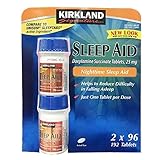Fight Insomnia and Sleep Better
Lack of Sleep is a Public Health Issue
Lack of sleep has been determined as a public health problem, according to the Center for Disease Control and Prevention. Sleep disorders have been linked to automobile accidents, industrial disasters and medical or other occupational errors.
Americans are falling asleep unintentionally while driving or are having difficulty performing daily duties because of the lack of sleep. Insomnia and other sleep disorders can lead to other diseases, such as diabetes, depression, hypertension and obesity, along with cancer, earlier death and an overall reduction in the quality of life.
An estimated 50 to 70 million adults in the United States have sleep disorders. Out of the reported cases of sleep disorders including insomnia, 43.7 percent have reported an unintentional nodding off at least once in the past month between the ages of 18 to 25. The numbers increase at age 25 to 35, with 36.1 percent falling asleep during the day.
The National health and Nutrition Examination Survey was introduced to 10,896 Americans in 2005. Adults typically reported they slept less than the seven to nine hours per night, causing them to fall asleep during the day. In 2009, only 31% of high school students surveyed actually slept at least 8 hours per night on an average school night.
How much sleep do we need? The time we need for sleep varies as we age. The National Institutes of health suggests that elementary to middle school children need about 10 hours of sleep per night. Teens need nine to 10 hours per night and adults require seven to eight hours.
A Good Pillow Can Help you Sleep Better
Get Started with a Schedule
Going to bed each night at the same time can help your body get into a rhythm. Falling asleep becomes easier when a schedule is adhered to every night.
Waking at the same time each morning is part of a scheduled sleep time. Set an alarm, even on your days off of work.
The schedule may take your body a few nights to become habit, but once it is perfected, the schedule will take hold and a better night's sleep will happen.
Sleep is Important for your Health and Quality of Life
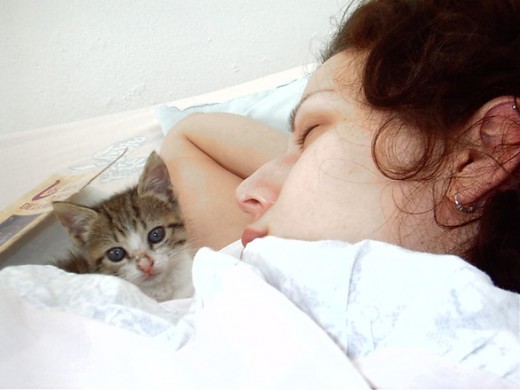
Avoid Smoking Before Bed
Avoid nicotine intake before bedtime. Smoking a cigarette may seem as though it relaxes you, but it actually causes anxiousness. Anxiousness can cause the brain to race at night and cause the body to remain "jumpy". The anxiousness takes a while to dissipate before the body and brain can relax.
How Much Sleep do you Get Every Night?
How much sleep are you getting each night?
Running or walking in fresh air can make you sleep better
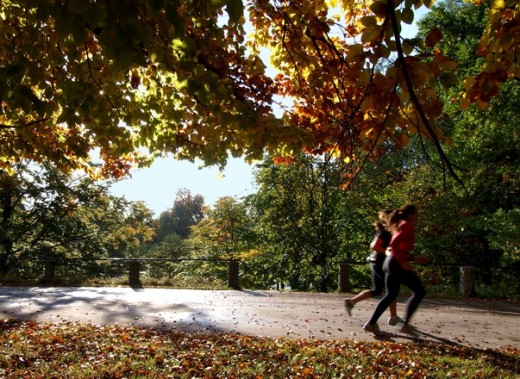
Exercise
Even if you take a short walk each evening after dinner or get involved in household chores, movement of the body is a good way to burn off anxiousness. Periods of exercise should be at least an hour to make a difference. Burning off calories and getting a better night's sleep is worth it!
Take a walk. Ride a bike. Resume household chores left for the day, especially vacuuming or putting laundry away. Mopping is a great way to burn off energy and a nice way to keep your house clean. It's a win-win.
Go outside and breathe in fresh air. You do not have to run a marathon or even work up much of a sweat, but fresh air and a brisk walk will do wonders for the body and will bring on a better night's sleep.
Avoid electronic stimuli before bed
When we sleep, our brain and body uses the time to relax and regenerate. Watching television, playing video games and getting online before bed is stimuli to the brain. Often the brain will continue to work overtime to process all of the stimuli it has received. This can cause the brain the inability to "shut down" enough to allow the body to rest. It is best to turn all electronic devices off about two hours before bed.
Video games and computer games can cause a bit of tension and anxiety. Anything that causes the body and brain to experience anxiousness before sleep should be avoided. Once again, the brain will attempt to process all of the stimuli and will not be able to "relax" to allow for a good night's sleep.
Calm the brain before bed instead of adding stimuli
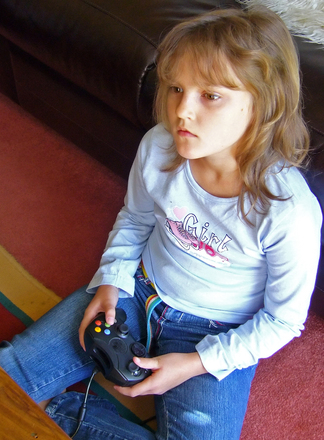
Create a quiet environment to sleep
Before bed, it is best when televisions and radios are shut off for the night. Create a quiet environment for sleep.
According to the National Sleep Foundation, our biological clocks rely on our exposure to light or darkness. When we leave a television on during the night, the light of the TV can stimulate a nerve pathway from the eye to various parts of the brain that control our hormones, body temperature and other bodily functions. These functions all play a role in how tired we feel or how wide awake we are.
One study found that unnatural light cycles have real consequences on our health, including an increase in the risk of depression. During the night, it is vital to keep the sleep environment dark. Use light-blocking curtains or an eye mask. If you happen to wake during the middle of the night, avoid light if at all possible. Use a small night light in the case of having to use the restroom during your sleep hours.
Once a routine is established in terms of no television at night, the ability to remain focused while watching TV and not falling asleep during a good movie will improve. When we watch television to fall asleep, the brain uses that pattern to tell us it's time to sleep during those favorite films.
If at all possible, move televisions and computers to another room in the home. This will help you avoid the association between electronics and sleep time.
Avoid caffeine before bed

Avoid caffeinated products in the late afternoon or before bed
Those warm beverages before bed may seem like a good way to relax before bed, but according to the Sleep Education Organization, caffeinated products cause more harm than good when ingested before bedtime.
While caffeine is a natural substance extracted from plants, it can also be garnered through synthetic means. Caffeine does promote alertness, being a stimulant. Caffeine works against the adenosine receptors in the body. Adenosine is a substance in the body that helps promote that sleepy feeling. Cups of coffee, caffeinated teas or soda can block the adenosine receptor, causing you to feel alert instead of sleepy.
Caffeine reaches a peak level in the bloodstream within 30 to 60 minutes. It takes the human body at least three to five hours before it will eliminate even half of the drug. The rest of the caffeine can remain in your system for eight to 14 hours.
Any caffeinated beverage can have an effect on sleep. Obviously it can create a restless night, with the inability to fall asleep. One study found that caffeine will delay the timing of the body clock, reducing the total sleep time. Caffeine has been proven to reduce the amount of deep sleep that the body needs to regenerate.
Reducing the amount of caffeine intake to no more than 300 mg to 400 mg per day is recommended. This amount is found in about three to four eight-ounce cups per day of coffee. Women who are pregnant or nursing should consume less than that or avoid it altogether.
Parents should limit the amount of caffeinated beverages their children consume. People with high blood pressure or heart problems should avoid high levels of caffeine. Avoid caffeine in the late afternoon or evening.
When ordering coffee from a coffee shop, consumers need to be aware that variations in caffeine are found in the type of bean that is used and how the coffee is prepared. The size of a tea bag, number of tea leaves and the brewing time can also affect the amount of caffeine in a cup of tea.
Bedding makes a difference in a comfortable night's sleep
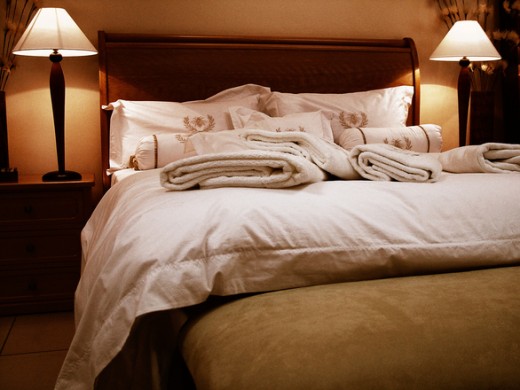
Good bedding is essential for a good night's sleep
Having comfortable pillows and a supportive mattress can make a huge difference in the way you sleep and how well you sleep through the night. If you are dealing with springs poking you in the back or a sagging mattress, this can not only cause posture issues, but can lead to many restless nights.
Ensure the blankets you have on the bed are not causing you to sweat profusely during sleep. You want blankets and sheets that will keep you warm, but not to the point where you are so hot you sweat during the night. When first entering the bed, the blankets may not feel like they are going to be enough to keep you warm, but after a while you will feel warmer.
The pillows you use can make a large difference in the way you sleep or how long it takes you to get comfortable enough to fall asleep. Pillows should support the head and neck, without creasing the neck or causing the head to be too elevated.
Choose relaxing activities before bed
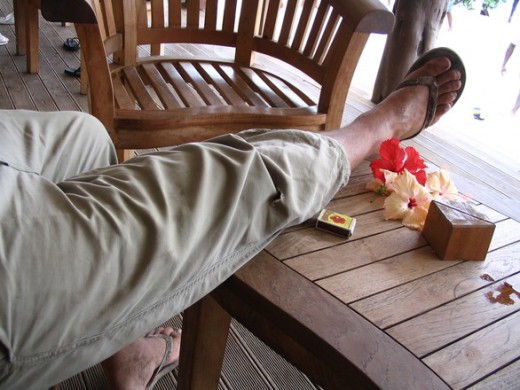
Relaxation Project to Help Sleep
Relaxing activities an hour before bed will help you sleep better
Instead of watching television or playing computer games, begin a craft project or read a book about one hour before turning in for the night. These relaxing activities can help you wind down before bedtime, creating a calm feeling to enter sleep mode restfully.
Reading is a great way to help reduce stress before bed. A book light or soft bedside lamp provides enough light to read, yet keeps the light at a minimum to avoid telling the brain it's daylight and time to get up.
One of the latest "fads" is the adult coloring book. Coloring at least one hour before bed can help reduce the amount of stress your brain and body has taken in during the day and help you sleep sound at night.
Avoid bright light even while working on crafts or reading before bed. Keep the mood in the room subtle, without stress or the brightness of a strong light to allow your body the chance to calm and ready itself for sleep.This is the perfect time to practice relaxation meditation.
Still tossing and turning?
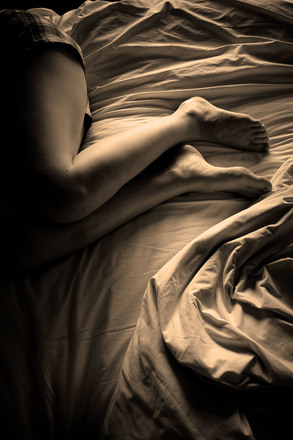
If you're still tossing and turning
After all of the tips have been utilized and you're still tossing and turning during the night, leave your room. Do not associate the bed with anything stressful. If something is causing undue stress during bedtime, omit it.
Avoid tossing and turning during the night. Leave the room and begin a calming activity until you are ready to sleep. Keep on your schedule as much as possible, but if you still can't sleep when it's time to lay down, continue a relaxation craft or meditation session. Keep the lights as low as possible to avoid creating a feeling of daylight for the body. This helps the body maintain the natural cycle of day and night.
If insomnia persists see a doctor
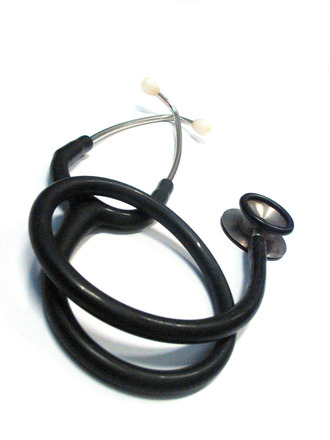
See your doctor if insomnia persists
After trying relaxation techniques, avoiding cigarettes, heavy meals and caffeine during the night and all else fails, it's time to visit your doctor.
There are decaffeinated teas that can help the body relax before bed, such as a camomile tea. Sipping a hot cup of this tea will help relax the brain and body and prepare for sleep. Once all options are exhausted, the doctor can help prescribe something that may help with insomnia or can diagnose an issue that may be keeping you awake at night.
A general practitioner will assist you in sleeping better or can provide a recommendation of another doctor who can. Sometimes a sleep test may be the key. Sleep tests can determine if there is another cause that you or the doctors are unaware of, such as snoring or sleep apnea. If sleep apnea is the root cause of sleepless nights, a supply of oxygen can be provided through a small mask during sleep.
Insomnia and Sleep Problems: The Top Causes
Summarizing tips for a better night's sleep
If you're having a difficult time sleeping, practice these steps:
- get on a schedule
- avoid nicotine before bed
- exercise at least one hour before winding down for the day
- avoid caffeine
- avoid watching TV or electronic stimuli two hours before bed
- have a comfortable bed and pillows
- practice a relaxation period before bed
- don't associate the bedroom or your bed with anxiousness
- avoid bright lights during the evening to keep your body on a natural schedule
- see your doctor if insomnia issues persist
- provide a calming sleep environment


